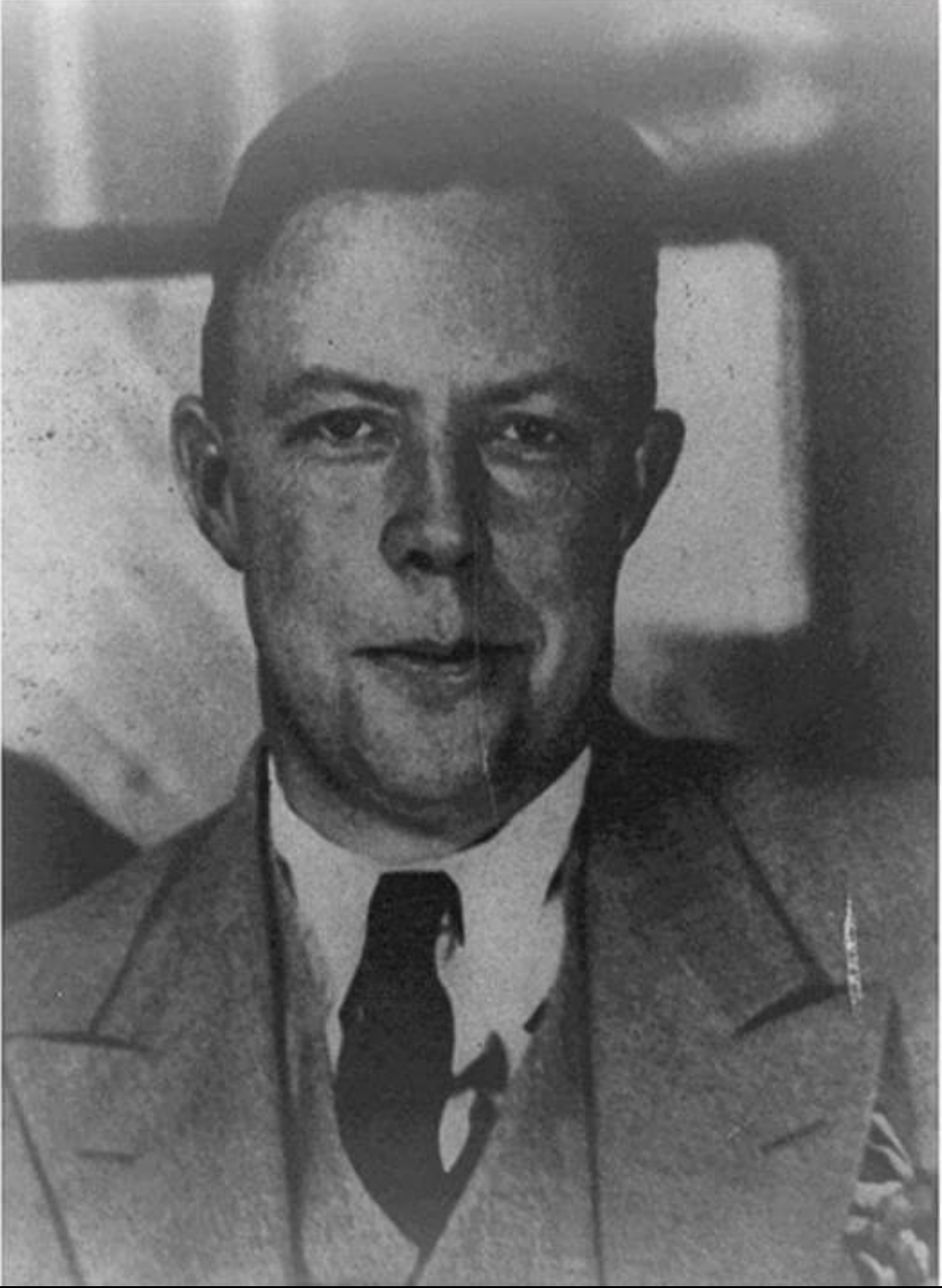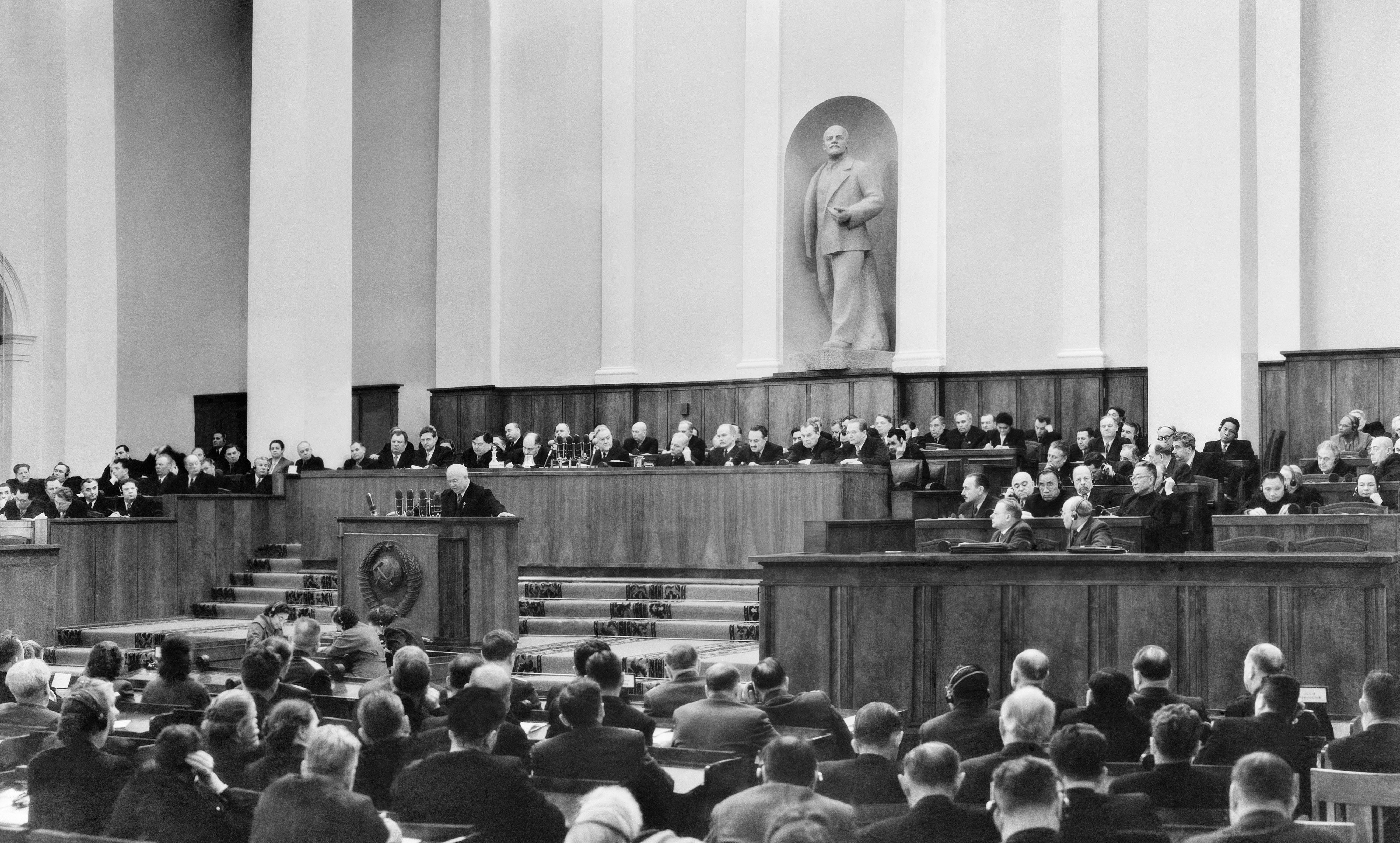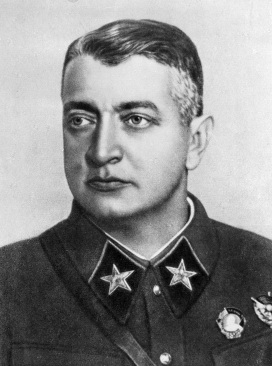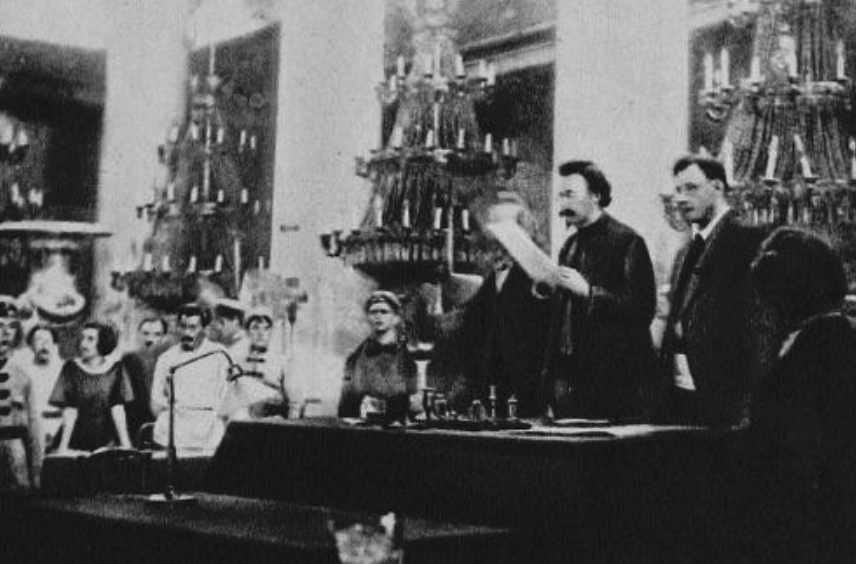Editors Note: The Dewey Commission was setup by fawning Trotskyites. Mauritz Hallgren resigned from the Commission stating Trotsky was guilty and attesting to the group being sycophants for Trosky. Carleton Beals also resigned from the commission calling it a Joke and a “Pink Tea Party” for Trotsky. Beals points out that Trotsky does not provide his archives that will prove his innocence, that the prosecutor refuses to question Trotsky appropriately and finally concludes “How could I judge the guilt or innocence of Mr. Trotsky, if the commission’s investigations were a fraud?”
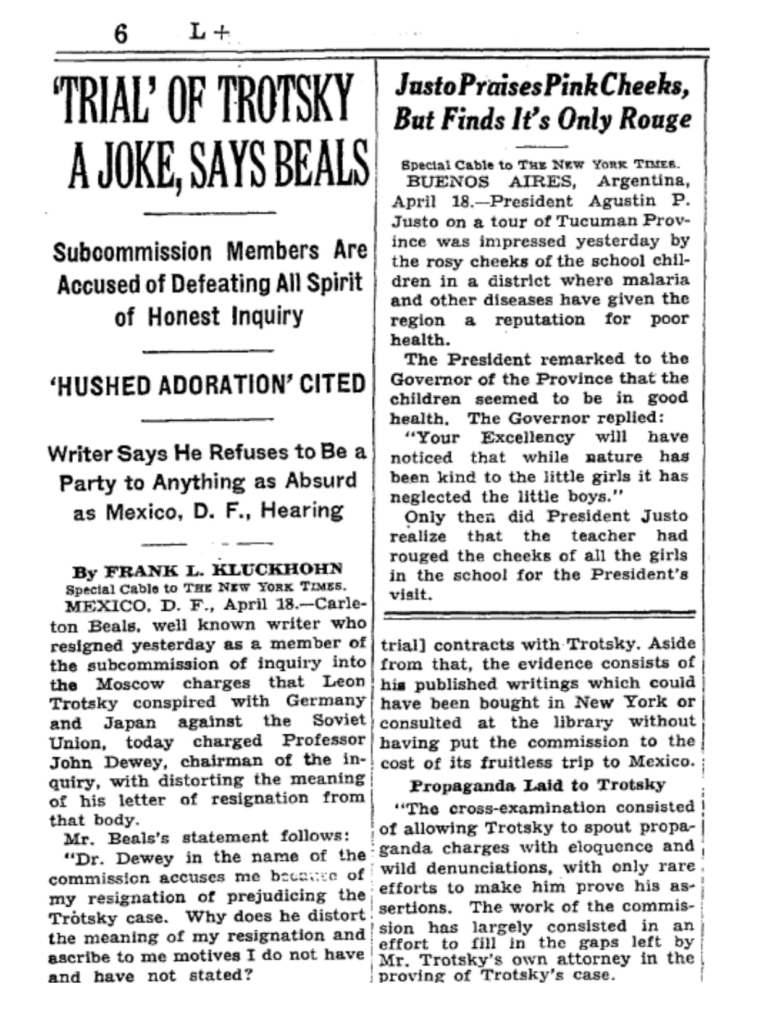
Beals, Carleton. ―
The Fewer Outsiders the Better. Saturday Evening Post,
12 June 1937,
23, 74,
NOTE–The American Investigating Committee, composed of liberals and radicals, went to Mexico City to investigate charges of treason, counter-revolution and terrorism preferred against Leon Trotsky by the Soviet Government. The committee announced that its purpose was to arrive at an impartial verdict on Trotsky’s guilt or innocence. Carleton Beals was a member of the committee. When he asked Trotsky pointed questions he was told that they were improper. He resigned from the committee. THE EDITOR.
In a LITTLE adobe house on a frowzy half-cob bled street of stagnant water, in the Mexican suburb of Coyacan , sits the former great war minister of the Soviet Union, the man who forged the Red army, who led it to the gates of Warsaw, who scourged the enemies of the nascent workers’ republic with pitiless iron hand. Here in a foreign land, in a tiny alien hamlet, founded by the Aztecs long before Mexico City, the hero who, a few years ago, shook the destinies of the world, now, hour after hour, he been presenting the fading record of his achievements to a hastily composed commission of Americans who are supposed to investigate into the charges leveled against him in the famous Moscow terrorist trials.
My English is the weakest part of my defense, he tells the commission on its preliminary visit to look over the locale where the proceedings were to be held
Trotsky’s own residence, loaned to him by the outstanding pistol-toting Mexican painter, Diego Rivera, ramrod of the local Fourth International groups of which Trotsky is the head. It is a humble place, with double entrance doors, guarded by the police, who frisk all comers. The rooms encircle a sunny patio, with a purple bourgainvillaea, and cluttered with grinning stone idols.
We are introduced to Trotsky.
He is nervous, good-humored, vigorous, apparently supreme above defeat; and yet the crumbling walls of the old house, the gloomy reception room with all the street windows bricked up, emphasize the handicaps and futility of his position.
Pathos hovers about his proud head with its wildly ruffled gray hair.
―I want to weep, remarks one commissioner as we pass out into the frowzy street,
―to think of him being here.
All, including Doctor Dewey, chairman of the investigatory commission, join in the chorus of sorrow over Trotsky’s fallen star—except one commissioner, who sees the pathos of human change in less personal terms. Later, at the trial, Trotsky presents himself with a thrust of tiny gray beard, which covers a most phenomenal protruding chin.
A beard is part of the equipment of all good revolutionists—Mr. Hearst’s cartoons are not entirely bugaboo—for no disguise is better for a conspirator sought by the police than that of shaving off a beard. Trotsky’s head and countenance are more Tatar than Jewish, and before the trial is over he proves the old Slavic proverb: ―Scratch a Russian, and —-
At the trial, Trotsky is ever aware that he is on a stage. His answers are uttered now with quiet simplicity, occasionally with laughing condescension; or suddenly he shouts a frothing defiance at the Stalin regime, giving vent to magnificent bursts of eloquence.
He is always ready to sacrifice complete honesty of reply to a quip of bon mot that will set the court laughing. But underneath it all he is an embittered man, holding his choleric disposition in check, not always successfully, only by superhuman restraint.
Now and then his peevishness turns to open anger in which he shows his shark like teeth—chiefly at the writer of this article—and then he is injudicious, his soft blue eyes take on a hard glitter, and one realizes it would not be pleasant to be at this man’s mercy, and that, unlike the liberal American investigators, he hasn’t a shred of interest himself in the civil liberties that they ostensibly are here to defend.
His mind is a vast repository of memory and passion, its rapierlike sharpness dulled a trifle now by the alternating years of overweening power and the shattering bitterness of defeat and exile; above all, his mental faculties are blurred by a consuming lust of hate for Stalin, a furious uncontrollable venom which has its counterpart in something bordering on a persecution complex—all who disagree with him are bunched in the simple formula of G. P. U. agents, people ―corrupted by the gold of Stalin.
This is not the first time that the feuds of mighty men have divided and shaken empires, although, possibly, Trotsky shakes the New York intelligentsia far more than he does the Soviet Union. A Saturday morning, clear, limpid. The great bowl of the Valley of Mexico shimmers in the early sun. The volcanoes rise, lofty, snow-clad, mysterious.
The commission is on its way in a body for the opening hearing.
―We must have no smoking, remarks Suzanne La Follette primly. ―Trotsky doesn’t like smoking.
―That is a marvelous opening statement, Doctor Dewey, of the aims and scope of the inquiry, another commissioner remarks.
―It’s not mine. It’s the work of the whole commission, Dewey mumbles in absent-minded fashion.
The Master Comes to Judgement
―All I did, remarks Suzanne, ―was to use the shears a bit. My inveterate editorial instincts.
―It will be interesting to hear it, remarked this commissioner, for I had not been consulted or shown the statement, giving out to the press the previous evening.
―You must throw away your chewing gum, Suzanne tells me sharply.
I was trying to cut down on smoking. Three times Suzanne ordered me to throw away my gum. In a session five days later, Mr. Trotsky was queried about an article he had written for a magazine. His attorney, Mr. Goldman, broke in:
―I believe, Mr. Trotsky, that in the magazine article you condemned the pernicious American gum-chewing habit.
―Yes, yes I have–
And so I learned why Suzanne wanted me to throw away my gum. I fingered my tie nervously. I had forgotten to ask Suzanne what color Trotsky preferred.
And a this moment my horrified eyes fell upon Frieda Rivera, wife of the eminent painter. She had pushed into a seat right against the railing that separated the court from the spectators and right in front of Trotsky, and not only was she chewing gum, she was repeatedly drawing it out of her mouth in a long thread.
The first sessions opened. Doctor Dewey’s statement. Trotsky’s statement. Mr. Goldman, Trotsky’s lawyer, began the presentation of the defense case. Mr. Trotsky has rehearsed his answer. He has to be repeatedly warned not to begin answering before Goldman finished each question. The hearings are decorous, restrained.
There is, on the part of the rest of the commission, an air of hushed adoration for the master.
Suzanne, her head on her hand, gazes steadfastly, her eyes filled with expectant worship. Benjamin Stolberg— mustache, face, hair all one ash-gray color—nods, chuckles, snorts understandingly at each of Trotsky’s sallies.
Mr. Otto Ruehle, the former Reichstag member, who knows no English, never lets his eyes stray from the master’s face. Doctor Dewey stares abstractedly, quizzically, once or twice asks a very, very respectful question. Everyone is so decidedly rapt. In the back, beyond the high rail, sit the members of the press and the representatives of a few little rump unions under Diego Rivera’s thumb, also a group of American Trotskyites, the only ones really meriting tickets to the crowded little room in Trotsky’s house—this ―public hearing.
The members of the Mexican press and the labor unions stir uneasily. Most of the latter finally solve the problem by going sound asleep, and during the six and a half days of the trial, a chorus of snores comes from the rear row, where a solitary gendarme looks bored and puzzled. A considerable number of Mexicans know no English.
No proper provision has been made for translating the proceedings to them, though this would seem an elementary courtesy to those of this Spanish-speaking land in which the trial is being staged.
―We can’t afford the time, this commissioner is told.
―Besides, we’re only interested in the foreign press. The fewer outsiders the better.
The Omnipresent Publicity Man
There, at the back, towers Diego Rivera. When he is not also snoring, his quick froglike eyes move restlessly, or he busily sketches cartoons.
A big peacock plume adorns his large sombrero. His wife provides the fashion note of the trial. Each day she appears in a new Indian costume with magnificent shawls and heavy silver Tarascan jewelry. She rarely sits; she perches. She perches on the arms of chairs, on tables, on the veranda railing.
Also in the back hovers Charlie Walker. Charlie is the press agent of the commission. He watches over the press table with a protective anxious air of a mother hen.
He leans over and read the copy of the correspondents; when they whisper to each other, involuntarily he steps forward to try to overhear.
The rest of the time he glowers at Kluckhohn, the New York Times correspondent, who has called the commission’s efforts a ―whitewash.
Walker is said to be a long-standing and simon-pure Trotskyite. This commissioner has been able to elicit no information from his fellow members as to why, when or how Walker was appointed, except that
―he’s a good man, and he seems to be. He has been in Mexico two months ahead of the commission, mostly in constant conference with Trotsky.
That seems a bit odd to this commissioner.
Dewey, Stolberg, Suzanne La Follette, the commission’s lawyer, John Finerty, along with the secretarial staff, live and eat at Walker’s home; they travel to and from the sessions in Walker’s or the commission’s hired car. Ruehle, a resident of Mexico, has his own apartment.
I and my wife were left to shift for ourselves, and live apart from the commission in a hotel, with little knowledge of the inner activities of the group. I hire my own taxicabs, and it is a long way out to Coyacan, and expensive.
The first sessions drones on.
This commissioner, who has been told that questions should be limited at this stage, at last is unable to stand the worshipful atmosphere.
―Can you prove that point? he unexpectedly barks at Trotsky.
The court jerks into startled surprise. Trotsky cranes his neck to look at the interlocutor, who has been put at the end of the table, out of the range of his view.
Trotsky evidently can’t prove it. His archives on this point were stolen by the Norwegian Fascists, but he made an affidavit, and various journalists have corroborated this.
The journalists turn out to be Trotsky’s own partisans. But Trotsky adds that the G. P. U. press— how he loves to snarl these initials!–proves his point. He offers no citations, though usually he is copious with them. The commissioner subsides. The glowering eyes of the whole courtroom are upon him, including those of the members.
At the afternoon session, Mr. John Finerty, lawyer for the commission, has arrived by plane. He is a tall, thin, red-brown Irishman, dressed in a red-brown suit, with handsome tie and flowing silk kerchief. He wants to know where one gets a Turkish bath and a masseur.
Gastronomically troubled by the altitude, he is living on tomato juice. He is even gentler with Trotsky than the commissioners, and hastens at every opportunity to put ―alleged into Trotsky’s mouth, so the latter’s record will read correctly; a constant usurping of the attributes of Mr. Goldman, the defense attorney. After each utterance, Finerty’s large liquid eyes look about with hopeful expectancy to see how his words have been taken.
The Missing Archives
The afternoon session drones on. Trotsky is telling his life history. Mid-afternoon, the defense announces that this preliminary sketch has been completed.
Dewey asks a few questions. . . .
―Have you any questions, Mr. Stolberg?
Stolberg gravely asks a few erudite, very respectful interrogations on dialectics and the tactical relations between Trotsky and Lenin. Trotsky understood the questions perfectly.
Stolberg had hurried out to the master’s house an hour ahead of the other commissioners.
―Have you any questions, Miss La Folette?
Dewey asks.
―Only one.
Suzanne’s question is so formulated as to give Trotsky a chance to spread his plumes.
The session is declared in recess.
After recess, Dewey tells Goldman to proceed with his next topic. But, to everyone’s surprise, it seems that Ruehle has some questions; Commissioner Beals also has some. My questions, I announce, are very elementary. I inquire concerning Trotsky’s archives.
He hems and haws, declines to state their whereabouts—information eagerly sought by the hateful G. P. U.– but finally offers to disclose the matter in secret session. (He had offered to put them in the hands of the commission.)
At any event, the archives are not in Mexico; most of his documents here are merely uncertified copies. What assurance, I ask, has the commission that if he is guilty he has not, in the months since the Moscow trials, destroyed all the evidence inimical to himself?
The structure of the archives disproves such a thesis; he claims; they reflect the personality of the man. Besides, he will refute all charges with the documents he has brought with him from Europe for that purpose. I question him on being a German agent, though several other commissioners are buzzing in Dewey’s ear and pulling his sleeve, to get me suppressed.
Trotsky has refuted the charge by a quotation from Lenin. But Lenin, was he not of Trotsky’s own party? Is that good proof?
Don’t embarrass the Defendant Brest-Litovsk.
Trotsky admits that he was then charged with a conspiracy with Prussian militarism, but that he then put the salvation of the Socialist state above territorial integrity of Russia—a tactic precisely to be able to better fight Prussian militarism.
―You are charged in the Moscow trials with conspiring with the German Nazi government and the Japanese government to sacrifice territory of the Soviet Union in order again to return to power. It is not logical to suppose that you would again consider your right to rule and your present brand of Socialism of greater importance than the territorial integrity of the Soviet Union?
―I would be only a cheap adventurer, exploded Trotsky, and he launched into a long-winded discussion of how he believed the only method of overthrowing Stalin was through the education of the workers.
Again this commissioner find himself the cynosure of glowering eyes. In the back of the room, my wife hears Diego Rivera telling his labor cronies, who have not understood the sharp interchange:
―That is Carleton Beals. He’s a G. P. U. agent.
The session is adjourned. Stolberg retires into a back room, biting his mustache furiously.
―Don’t you feel that my questions were necessary? I ask him gently.
―Yes, yes, of course, replied Ben.
―But Trotsky answered them badly. That about the archives not being here. The Times man will snap that up…only copies..!!
―You put fine questions, the commission choruses to me.
―But we have to get together and agree on questions.
Mr. Finerty wishes it definitely understood that the commissioners’ questions shall refer to matters of fact only. Your questions about Brest-Litovsk were entirely out of place at this time.
Later on, of course—- The trial had its poignant moments. Trotsky told vividly of the persecution of his family—all of them apparently engaged in secret political activities—how his sister committed suicide in Paris because the Soviets withdrew her citizenship.
Trotsky’s eyes were filled with moisture, and it was one of the few times he did not burst into a diatribe against Stalin and the G. P. U. agents. At my side, Stolberg was furiously scribbling on a pad in a frame of sketched flowers, ―I want to bawl—I want to bawl–
During the recess following this scene, the commissioners hotly berated Stalin’s persecutions; Dewey was especially wrathful. Saturday and Sunday the other commissioners consulted the procedure to be followed in the trial.
This commissioner was not advised. Miss La Follette, the secretary, says she called him at his hotel Sunday morning, but he was there all day and received no telephone call and found no message. Monday I surprised the court with an independent statement of my position and what I considered the proper aims of our work—that I had no connections with either Trotsky or the Stalin faction, that our work should not be improperly utilized by either. I pointed out a technical mistake in Dewey’s opening statements, indicated my disagreement on various points.
Dewey leaped to his feet to declare that I had arrived in Mexico City after commission’s statement had been prepared and that there had been no opportunity to show it to me. The truth was that I had been in Mexico, in touch with the commission, two days before the opening sessions, during which time the Dewey statement had been given to the press.
Mr. Finerty leaped to his feet, as usual, to do Goldman’s work for him; to attack me for my correction of the commission’s statement on the matter of Trotsky’s extradition. I merely replied that I was not interested in being a party to the commission’s errors. At the afternoon session, Dewey read an apology for the rest of the commission. I replied that I was not concerned about the commission having ignored me, but merely hoped that it would still accept my constructive suggestions..
At the recess of the morning’s session, I was informed by the rest of the commission that it had decided to abandon the original plan to take up the various aspects of the case topically and cross-examine on each section of the evidence, general cross-examination to come later. There was no time for such a method, I was informed, and so Goldman would present his defense in toto.
Thereupon each commissioner was to draw up a line of cross-examination to be submitted to Mr. Finerty. Commissioners were to ask only such questions as fitted the scheme of the cross examination—preferably through Mr. Finerty—which arose in their minds at the moment.
The Examiner’s Helping Hand I had not been consulted regarding the original form of the procedure, nor was I even told of the sequence of topics, which was making it difficult to prepare any sort of intelligent examination of Trotsky on my part.
The new plan quite smothered my liberty of action on the commission. But worse than that, it would defeat honest investigation.
We could not run the investigation like a railroad train—on schedule. By leaving the entire cross-examination until the end, the original defense of Trotsky would be lost sight of, the points at issue dulled and forgotten, even with the best of note-taking. No transcript of the trial was to be available until long after the sessions ended.
This made our work very blind, and it also made it impossible to guarantee a correct record. Nor was I content to let Mr. Finerty handle all the cross-examination. He had already shown himself pathetically gentle with Trotsky, he had hastened to put favorable words into Trotsky’s mouth, and seemed to have little grasp of the case.
Despite the limitation put on our questioning, I did, as did also other members of the commission, ask a few questions. There were literally hundreds of queries that, as the case dragged on, I felt should be asked. But to have done so would merely have made me a nuisance in the eyes of the commission, invariably hostile toward my line of questioning, which almost invariably they sought to interrupt.
Once, at a sharp interrogatory of Trotsky, Ruehle shuddered at my elbow ―Sehr schade! Sehr schade!‖ How sad! How sad that I should speak in a peremptory tone to the master!
Thereafter, every time I asked a question, Ruehle would writher in his seat and emit a series of low groans, like a man in pain.
The Pink-Tea-Party Trial
For five and a half days, Goldman presented Trotsky’s defense. Late Friday morning, Finerty began his cross-examination. It consisted that first day, of a confused and elementary cross- examination of Trotsky on the history of the Russian revolution. When he got through, Trotsky positively had wings on his shoulders.
A handful of questiones were asked of Trotsky on terrorism and the one-party system. Several questions were asked regarding Piatakov’s supposed trip to Oslo to see Trotsky. T
he Romm case was ignored completely. Neither the details presented by Trotsky in his defense nor the numerous crucial points of the transcript of the Moscow trials were adequately examined.
For all practical purposes, Finerty merely continued Goldman’s defense of Trotsky; he filled in the gaps left by Goldman in Trotsky’s defense. It must have been somewhat disillusioning, even to Trotsky.
His table was piled high with books and papers which had not been presented in his defense, but which, apparently, he had expected to find useful in refuting the cross-examination. He had practically no use for any of this material. The commission itself became alarmed at the banality and pointlessness of Finerty’s questioning.
At a recess that afternoon, the various members of the commission rushed up to me.
―For God’s sake, Carleton, ask some questions. This is terrible. The man doesn’t have any background. He’s getting nowhere.
―Why should I ask questions? was my rejoinder.
―The ones I have do not fit into the arbitrary scheme the commission has accepted for the cross-examination. I do not wish to give questions to Finery to have him garble them.
Even Trotsky’s official translator came to me to get me to ask some questions with some real import, and later, in the courtroom, passed me several good ones. The whole atmosphere of the trial had become that of a chummy clubroom, a pink-tea- party with everyone uttering sweet platitudes. The day was now waning and there would be only half a day on the morrow to get at the truth of falsity of Trotsky’s five and a half days of defense.
But I was not to be a party even to that half day. Under the repeated urging of the commission, which had hitherto been so hostile to my questioning, I decided to jump into the arena once more with a line of questioning to show Trotsky’s secret relations with the Fourth International, the underground contacts with various groups in Italy, Germany and the Soviet Union.
Trotsky, of course, had steadfastly denied having had any contacts whatsoever, save for half a dozen letters, with persons of groups in Russia since about 1930. This way hard to swallow. To lay the basis for this questioning, I had to go into Trotsky’s previous secret relations with the outside revolutionary groups when he was a part of the Soviet state.
I quizzed him on the secret activities of Borodin in Mexico in 1919-20. The result was a violent explosion. Trotsky called my informants liars, and completely lost his temper. My informant, among others, I advised Trotsky, was Borodin himself. Doctor Dewey hurriedly lifted the session.
A junta of the commission was called to take me to task for my questions. Mr. Finerty declared that no commissioner could ask questions on the basis of unproved facts. Doctor Dewey declared that the commission had insisted Trotsky provide the proof of all his assertions.
As a matter of fact, Trotsky for hours had been leaving charges of Moscow gold against everyone who disagree with him; frenziedly he accused all such of being G. P. U. agents. There was a touch of paranoia to it. The commission had never once asked him for the proof of such statements, and I was not going to be the one put in the position of challenging them.
And so, now, once more, Mr. Finerty was eagerly doing Mr. Goldman’s job for him.
Avoiding the Tight Spots
I mildly suggested to the commission that my word was a good as Trotsky’s. I was willing to go on the stand myself if that would simplify matters. I had published the record of Borodin’s activities in Mexico years ago; I could produce other witnesses.
But it was all too patent that the commission would not tolerate anything that might put Trotsky in a tight spot.
I finally told Mr. Finerty that, whatever the nature of my questions, I could not be accused, as he could, of being Mr. Trotsky’s lawyer instead of the lawyer of the commission.
―Mr. Beals, he raged, ―henceforth our relations will be purely official, not personal.
―they shall not even be official, I answered. ―Either you cease to be lawyer of this commission or I leave the commission.
Suzanne burst into tears.
―This is a great historical occasion, Carleton; don’t mar it. Tell Mr. Finerty you’re sorry.
With that I left the premises.
The commission, alarmed, pattered after me. I was through. My resignation went in the next morning. Dewey accused me of prejudging the case. This was false. I was merely passing judgment on the commission. He declared that I had not been inhibited in my questioning. He declared that I had the privilege of bringing in a minority report.
My resignation was my minority report. How could I judge the guilt or innocence of Mr. Trotsky, if the commission’s investigations were a fraud? As was to be expected, Mr. Trotsky accused me, by insinuation, of being a G. P. U. agent. Slightly bad taste, when I had, months before, wired President Cardenas a plea to give him asylum in Mexico.
Trotsky should have been, if innocent, the first to desire that any and every question be asked him, regardless of the consequences.
A Trial That Proved Nothing
The net result of the labors of the commission? No adequate cross-examination, no examination of the Trotsky archives.
A scant day and a half of questioning of Trotsky; mostly about the history of the Russian revolution, his relations with Lenin—this with an eye to his defense against Stalin charges—a lot of question on dialectics and a few scattered unorganized question on terrorism and the Piatakov incident.
The only new documents of any moment were those covering the alleged Romm and Piatakov contacts with Trotsky.
Trotsky had already, in the press, on the platform and in pamphlets, pretty well blown up the Soviet case on those two points.
Unfortunately, Romm and Piatakov were not available for further cross-examination, so that little has been gained by such refutation.
Trotsky’s new documents were not over illuminating.
One, for instance, was the sworn statement of a hotel-keeper that a party of five persons had stopped at his establishment on the date Trotsky claimed—no names, no registration, no official passport numbers. Trotsky’s party was of six persons, not five. Aside from such matters, the evidence submitted by Trotsky consisted of his published articles and books.
These could have been bought in New York or consulted at the public library without the commission having been put to the expense of such a fruitless trip. Its work is not done. But no amount of fumbling over documents in New York can correct the omissions and errors of its Mexican expedition. This commissioner, on accepting membership, was told that the Mexican commission would include Doctor Beard, John Chamberlain and Louis Adamic.
None of them were present on the Mexican scene. I was able to get not satisfaction regarding the future personnel of the larger New York commission, nor how it would be appointed—whether by the commission itself or the Committee for the Defense of Leon Trotsky.
From the press I learned that seven other commissions were at work in Europe, and that these would send representatives to form part of the larger commission. I was unable to find out how these European commissions had been created, who were members of them.
I suspected them of being small cliques of Trotsky’s own followers. I was unable to put my seal of approval on the work of our commission in Mexico. I did not wish my name used merely as a sounding board for the doctrines of Trotsky and his followers.
Nor did I care to participate in the work of the larger organization, whose methods were not revealed to me, the personnel of which was still a mystery to me.
Doubtless, considerable information will be scraped together. But if the commission in Mexico is an example, the selection of the facts will be biased, and their interpretation will mean nothing if trusted to a purely pro-Trotsky clique.
As for me, a sadder and wiser man, I say, a plague on both their houses.
